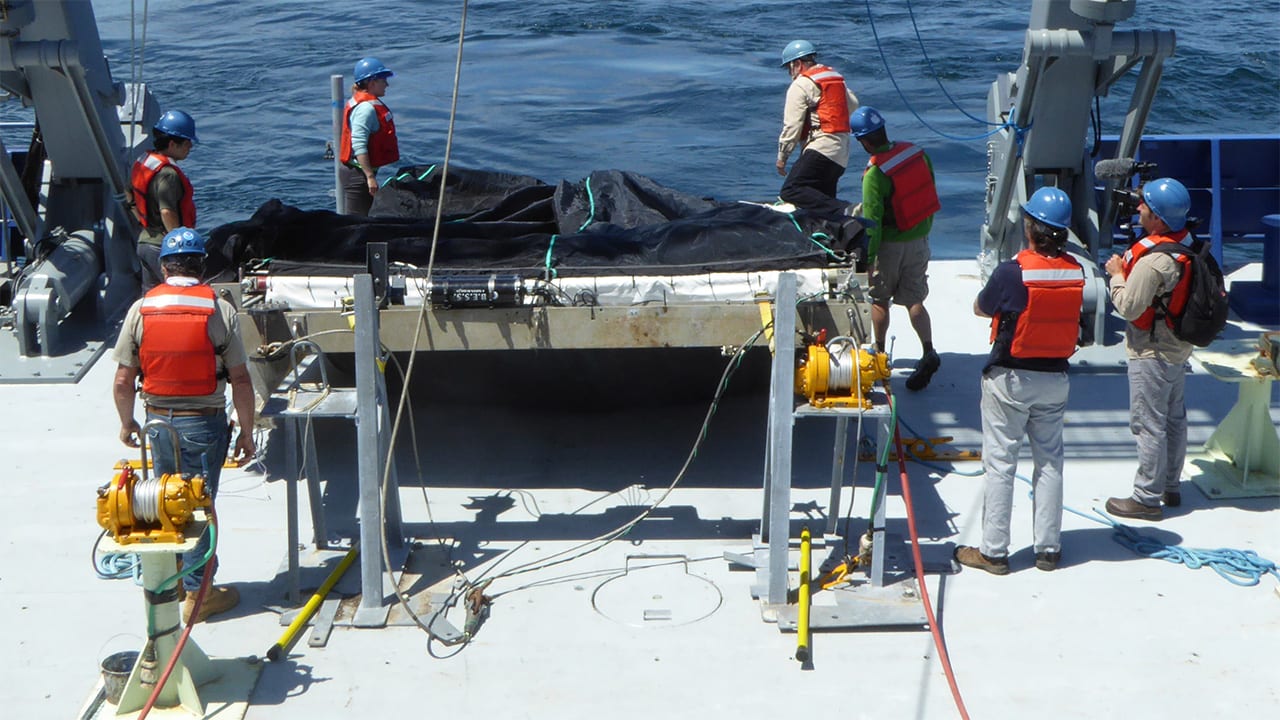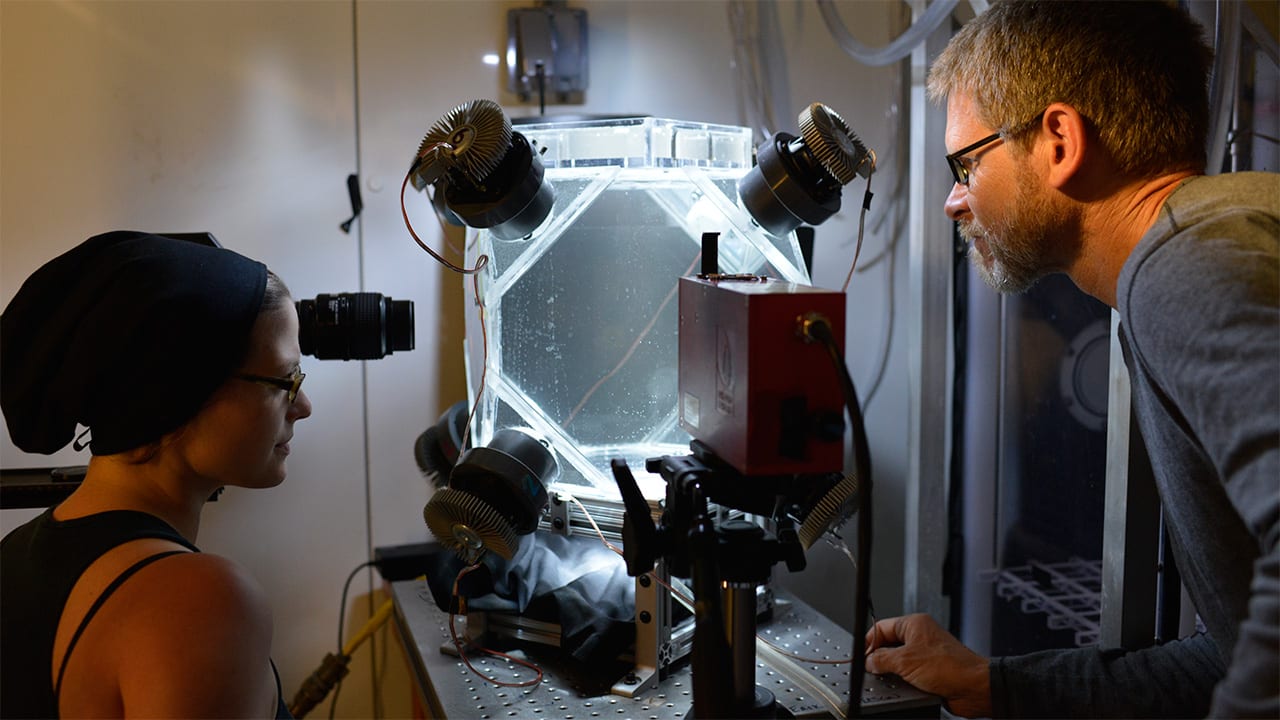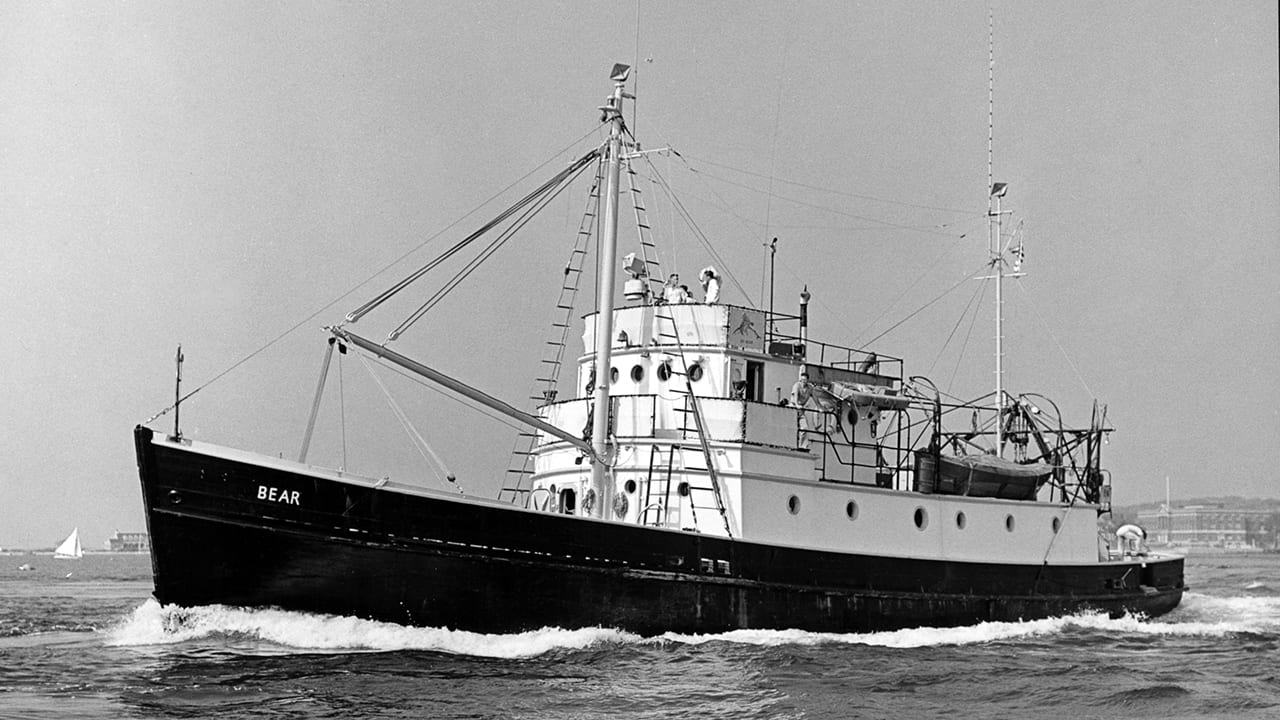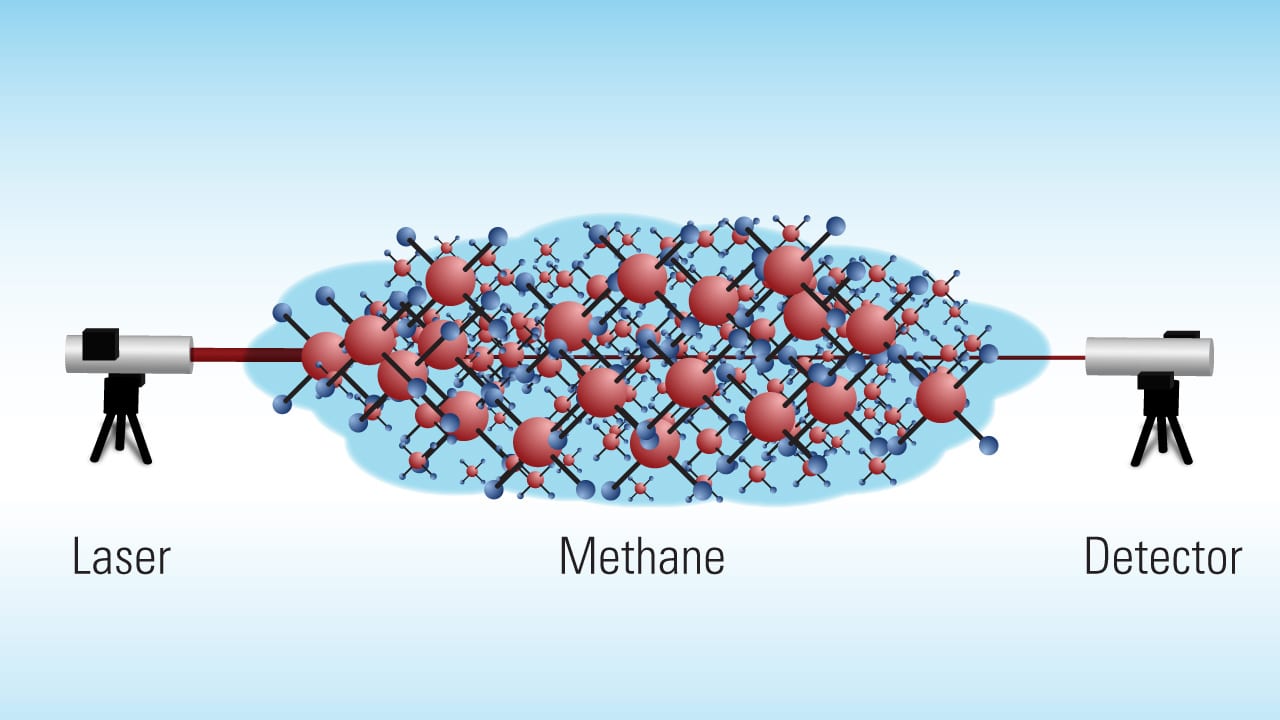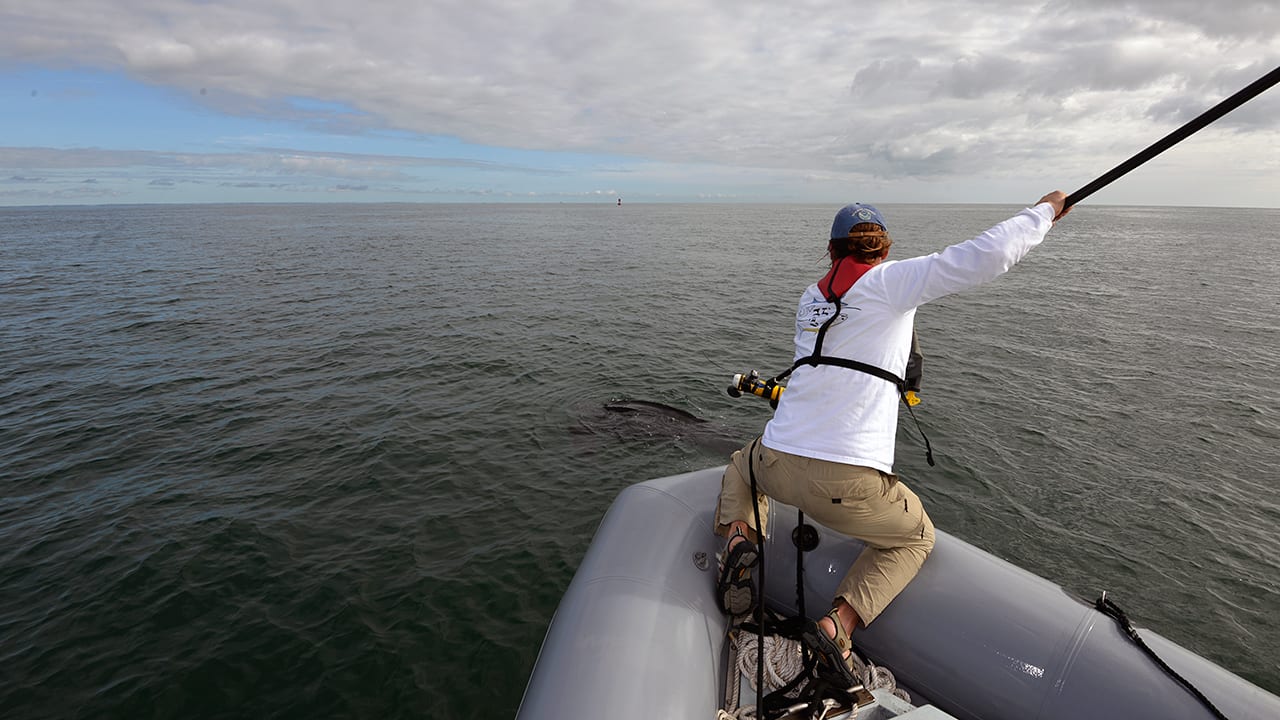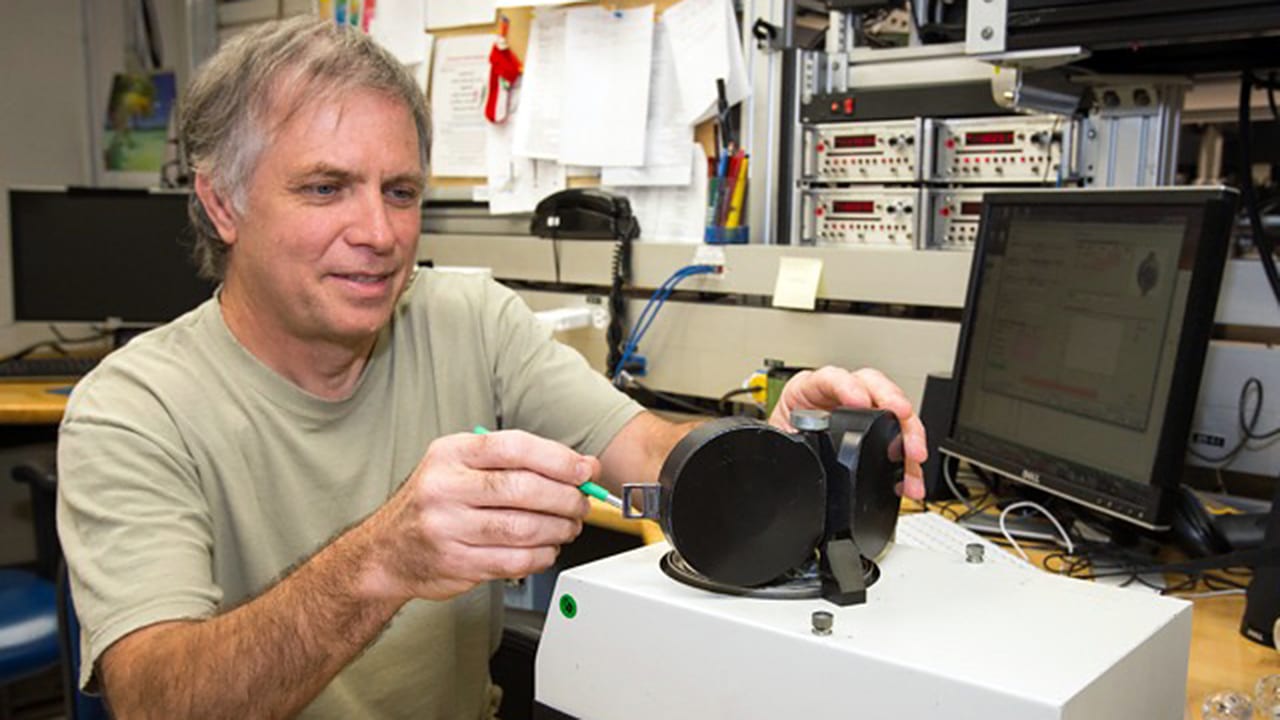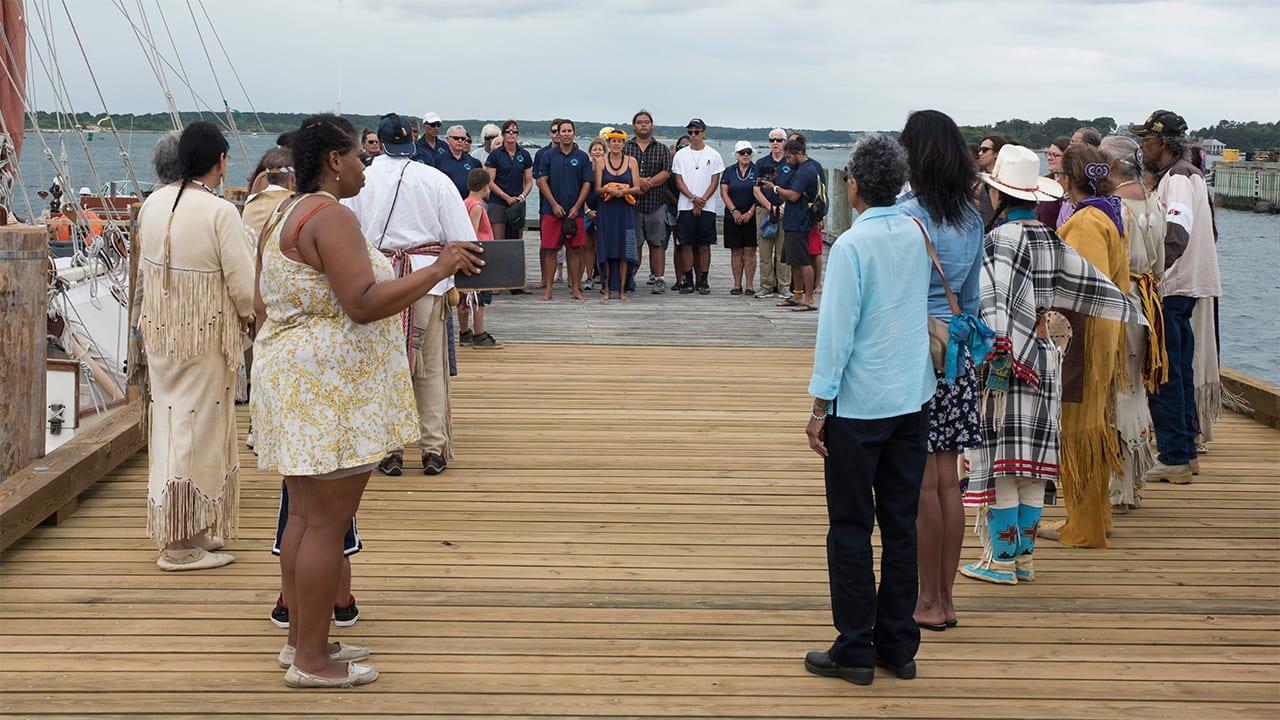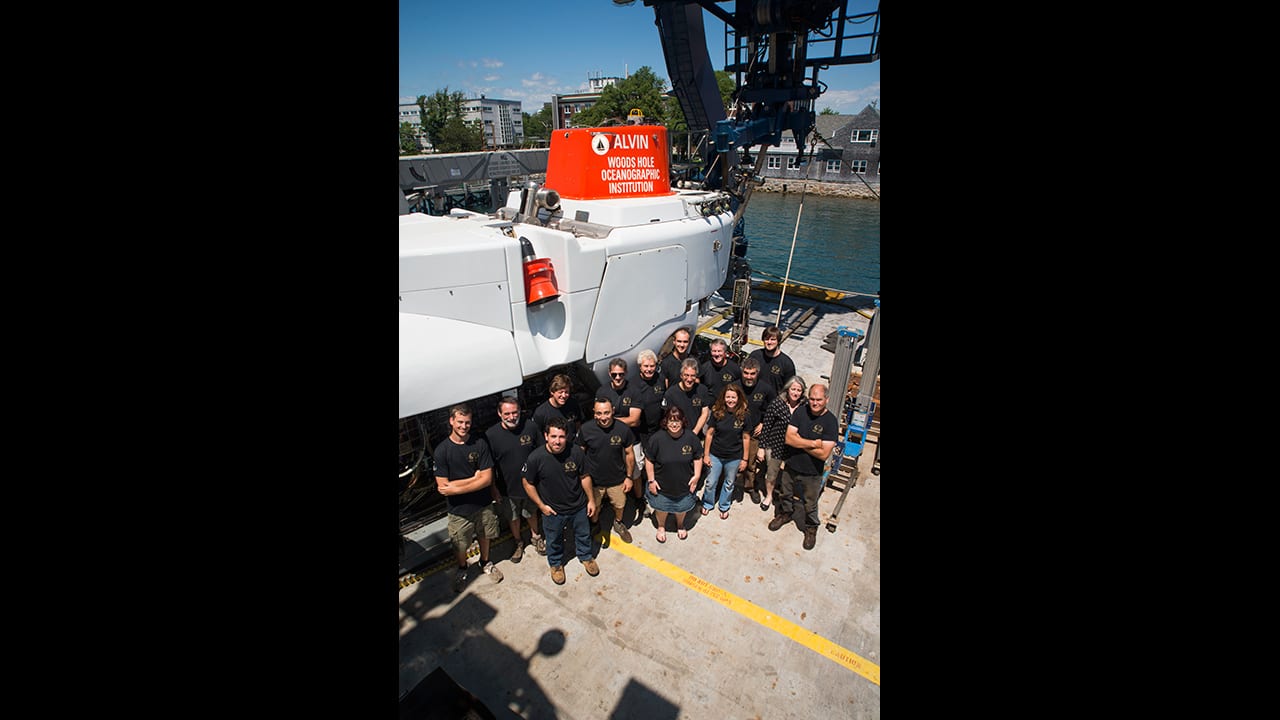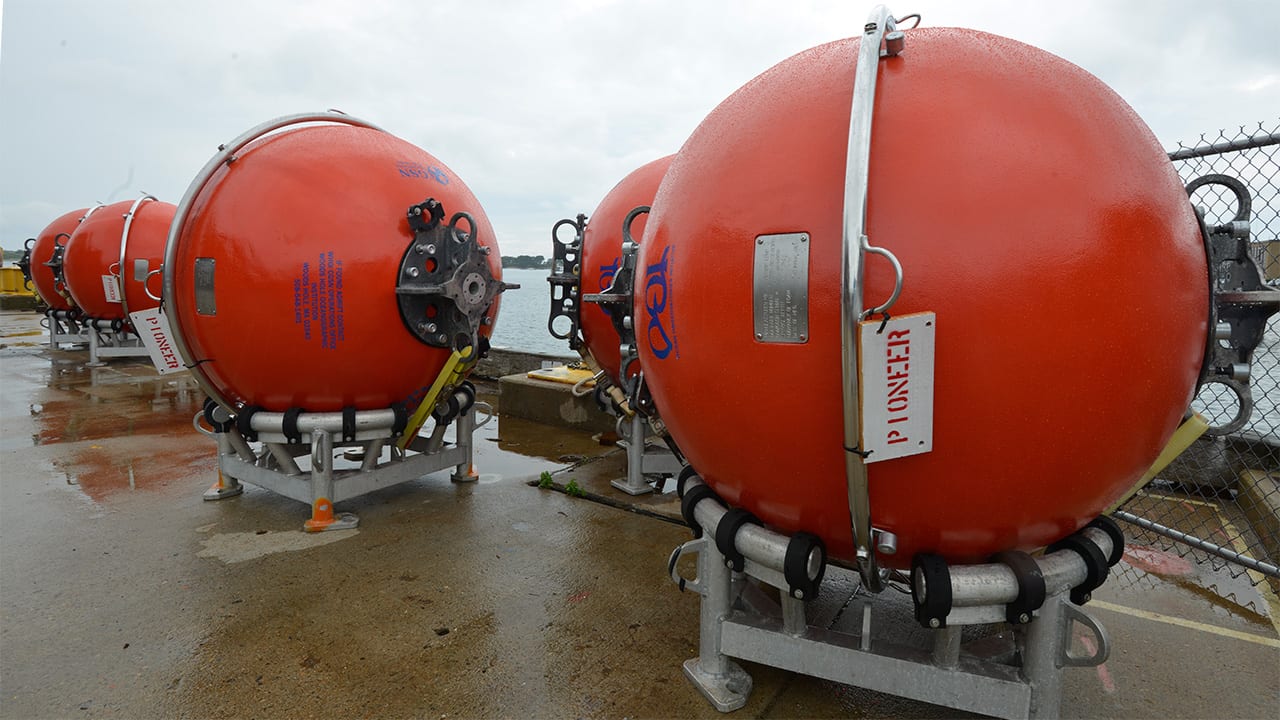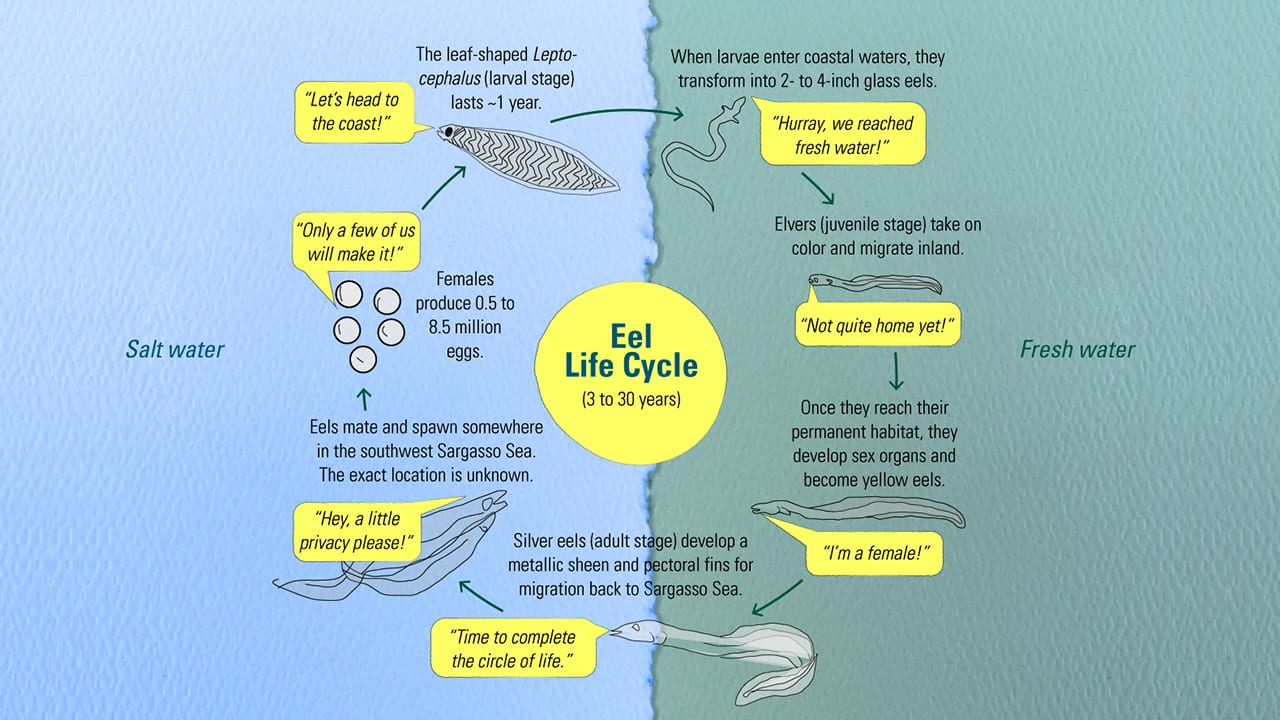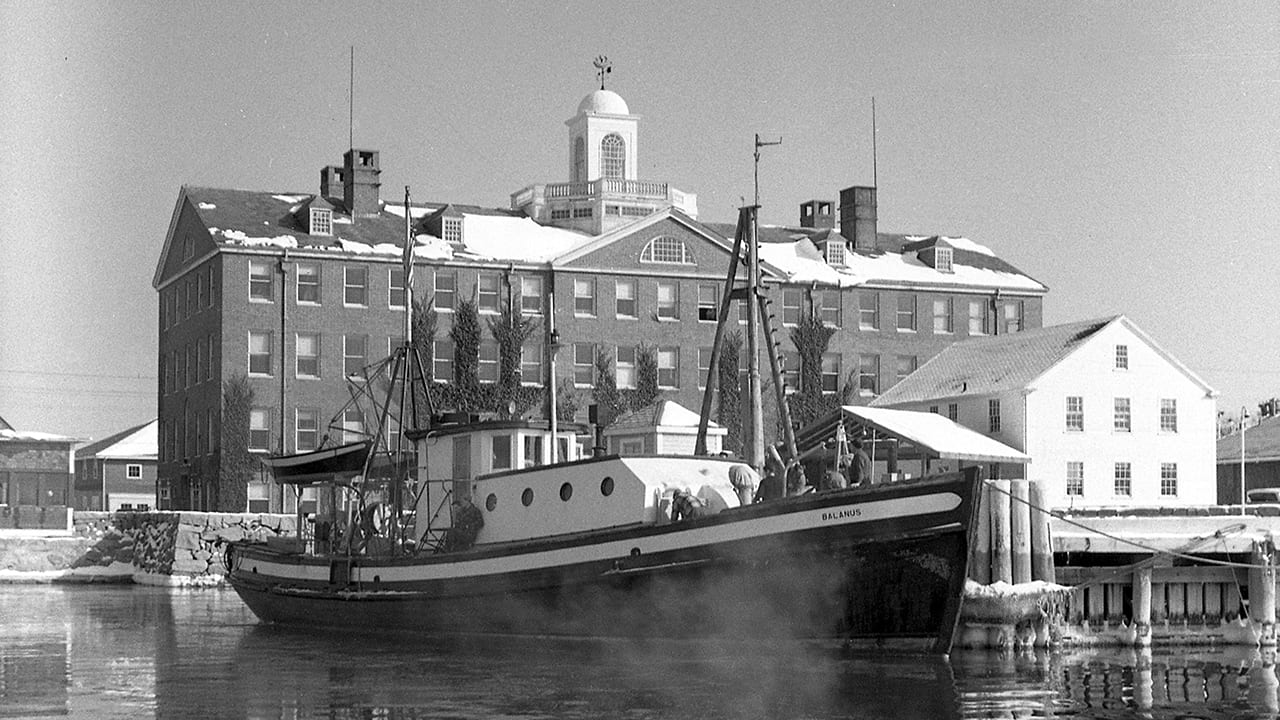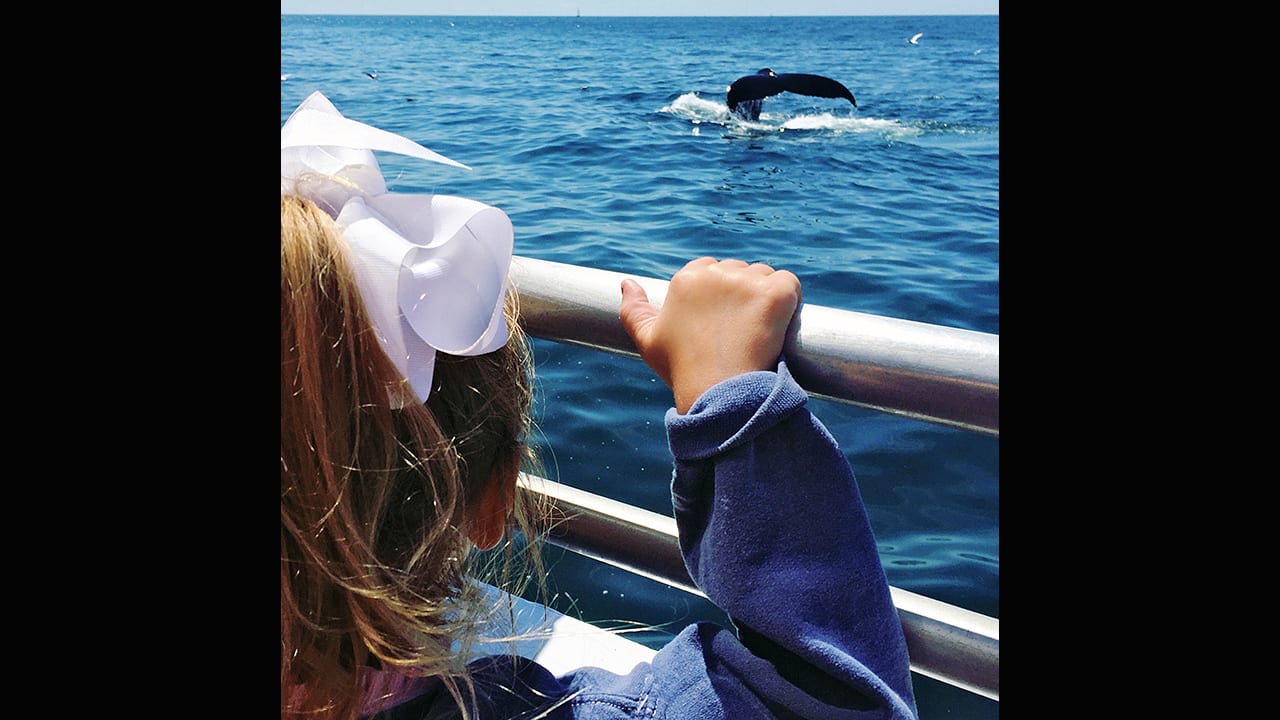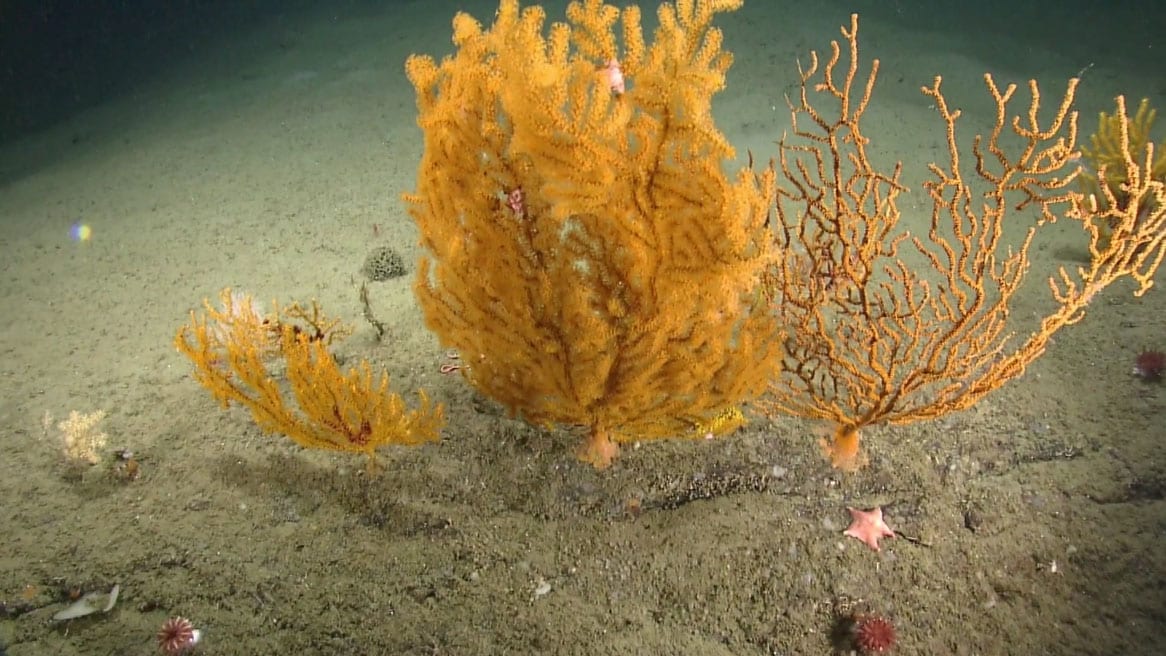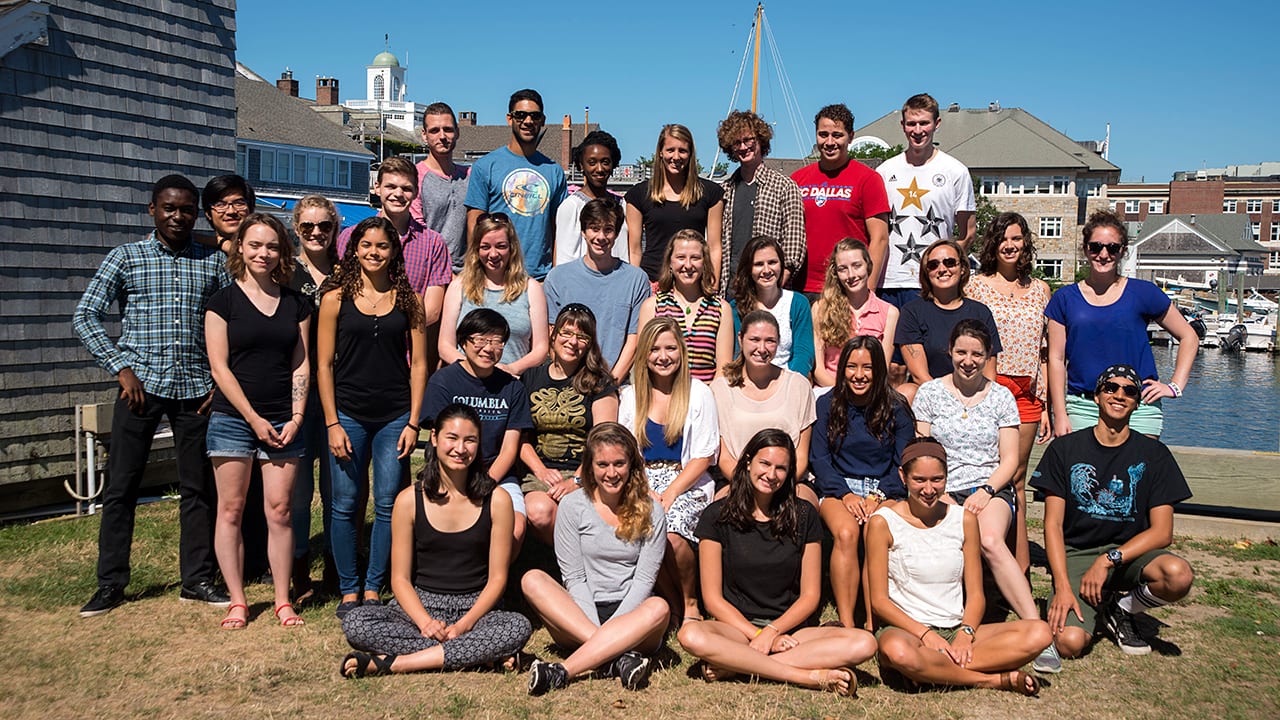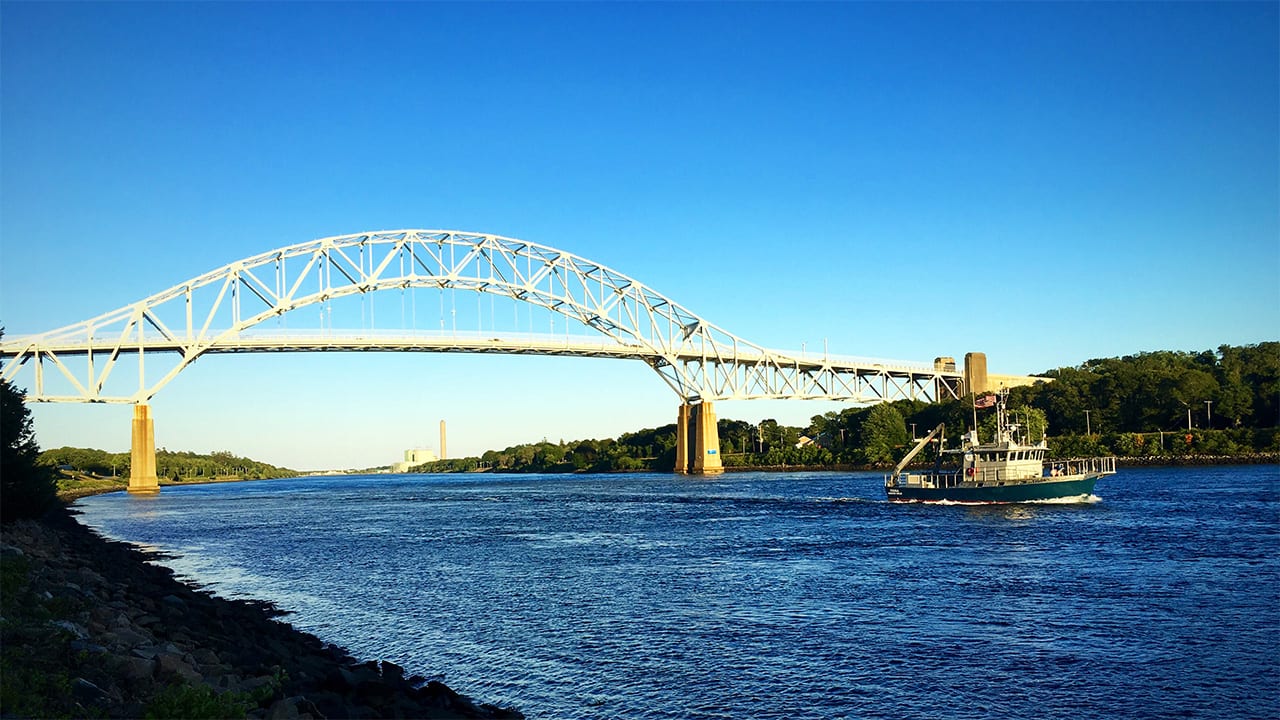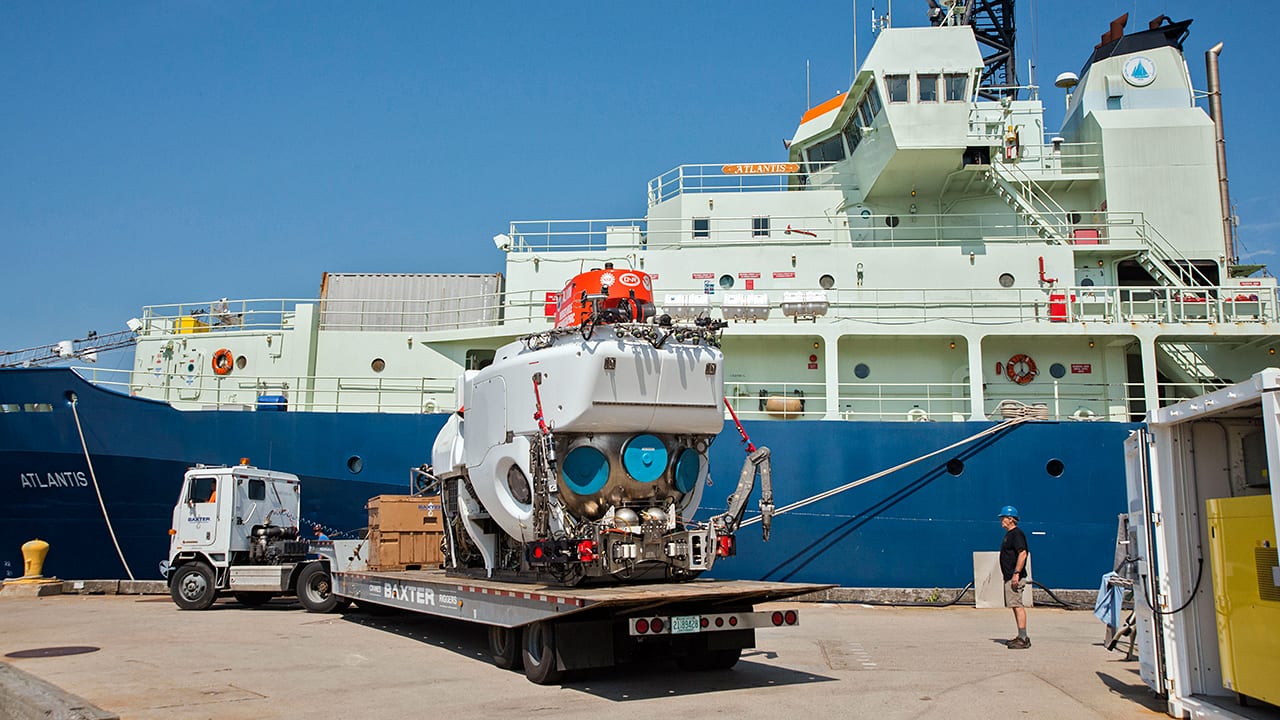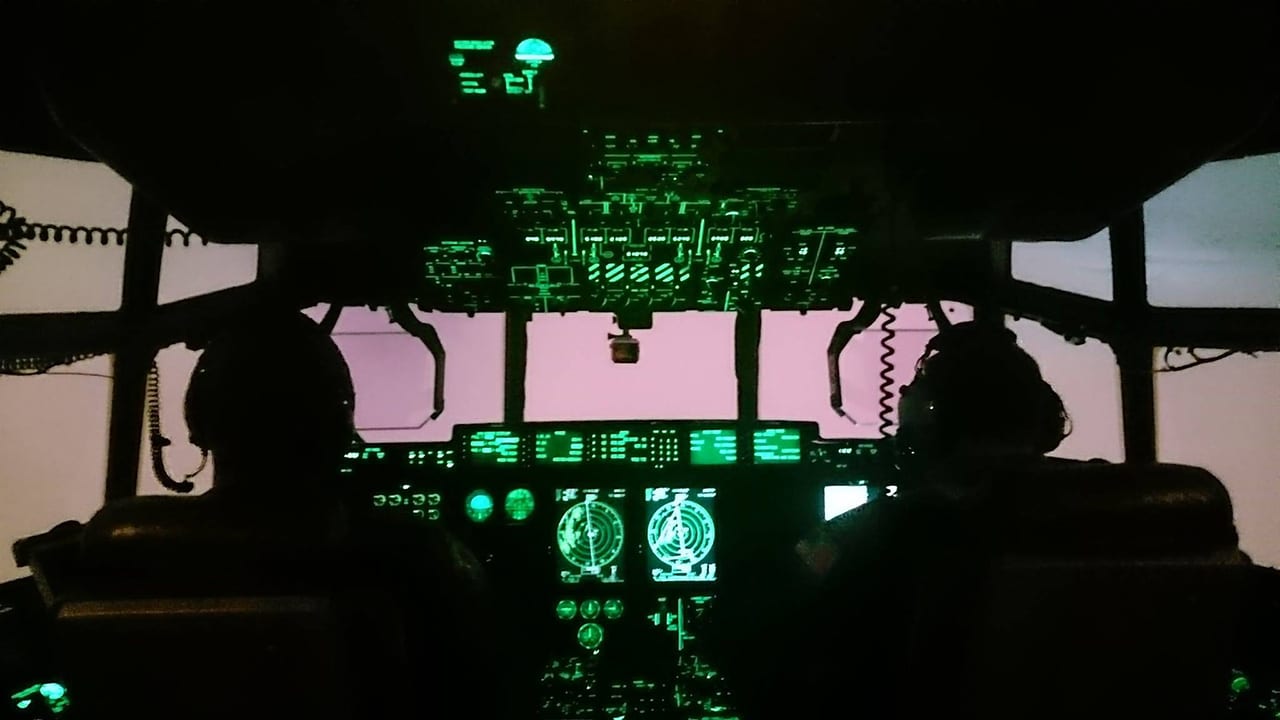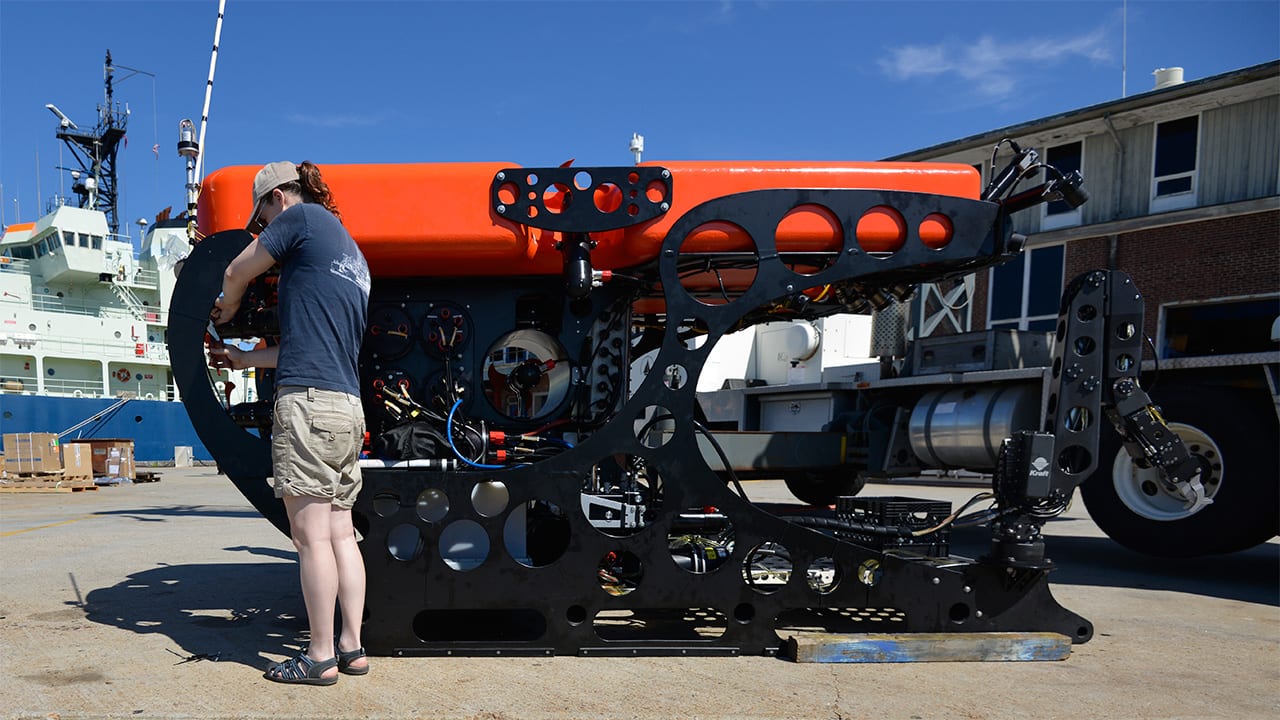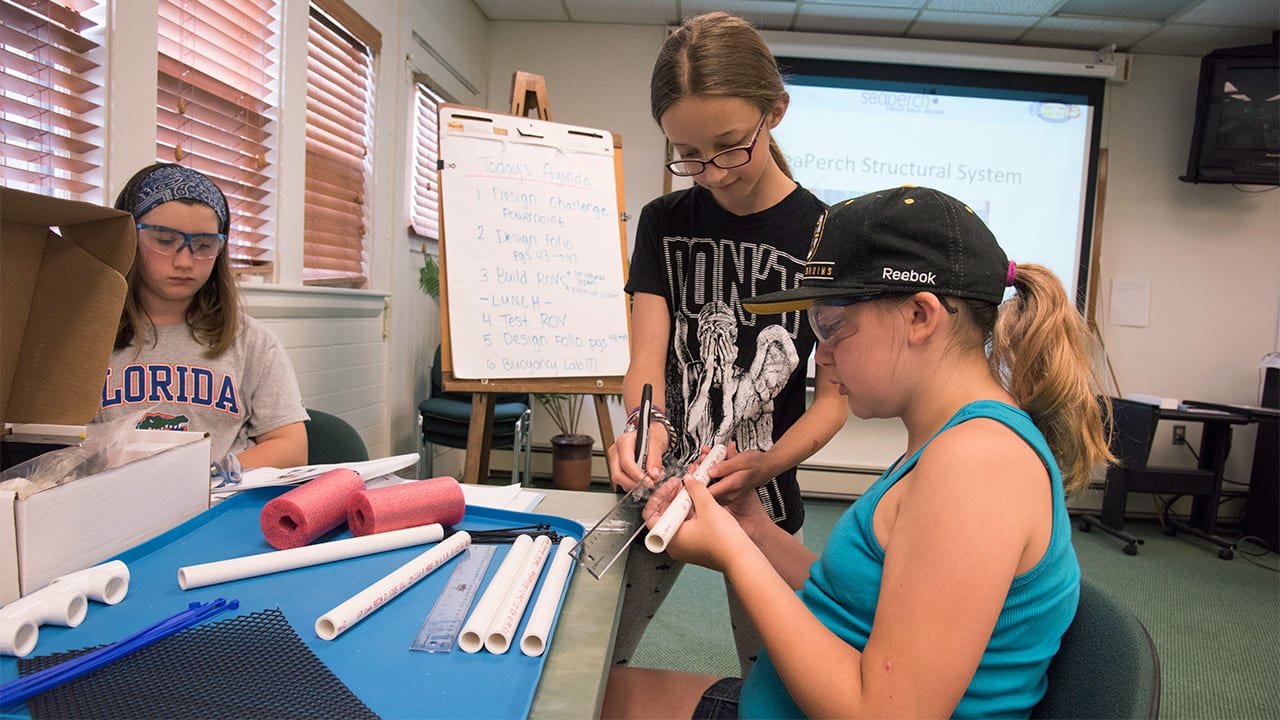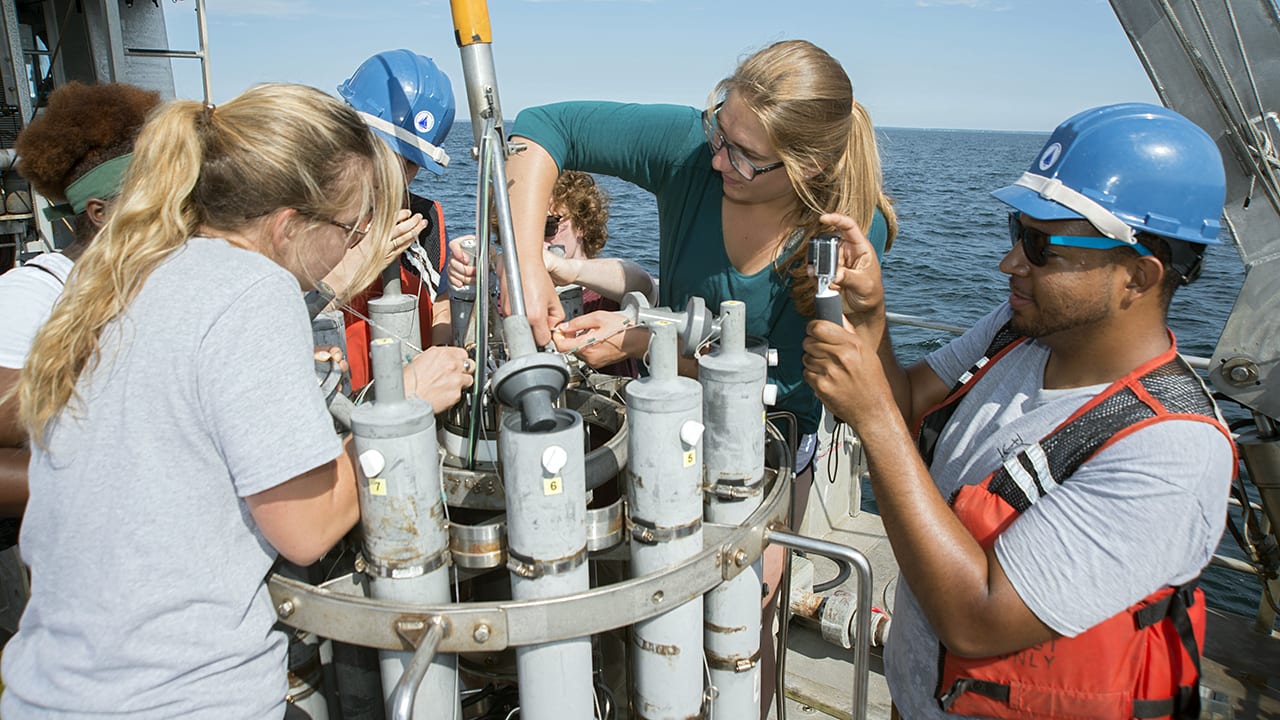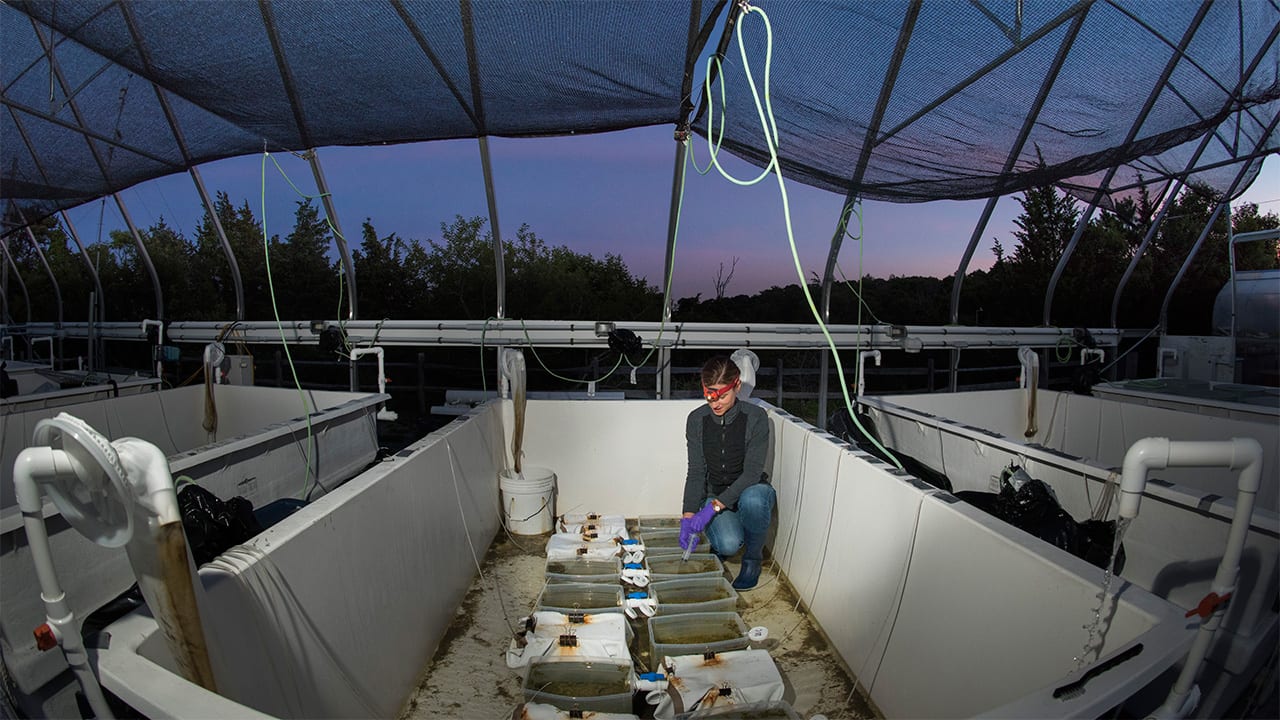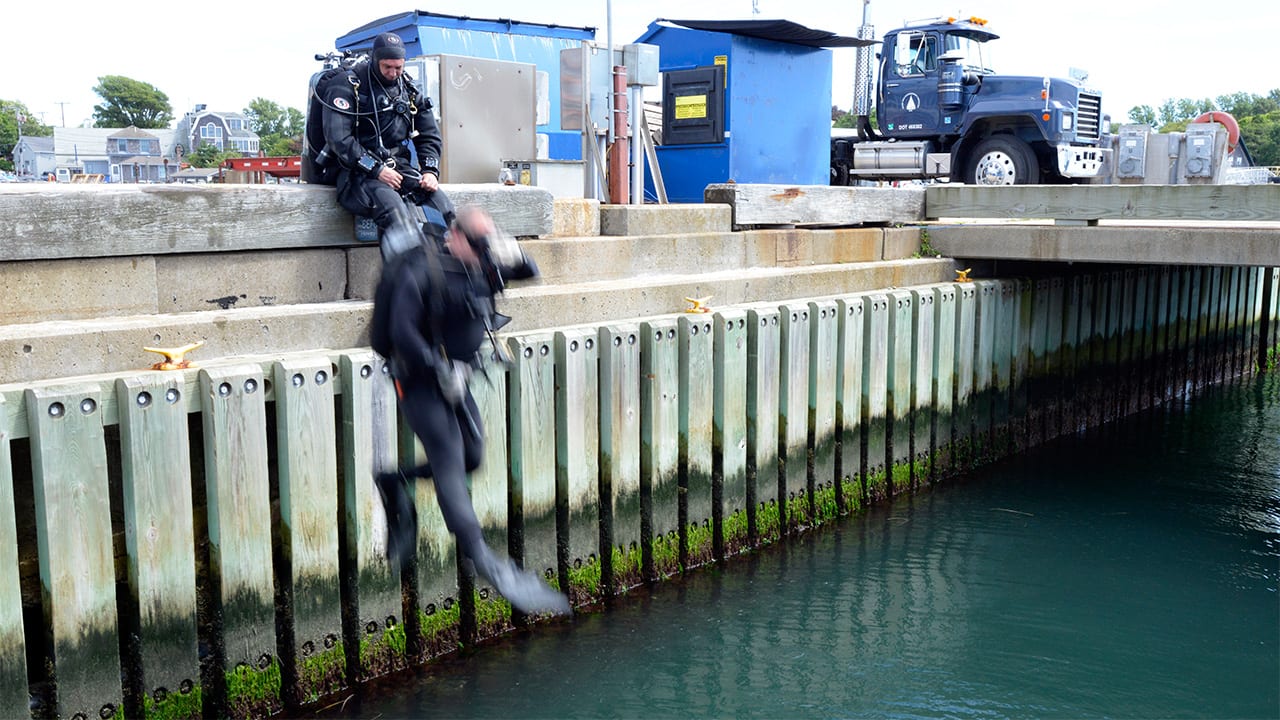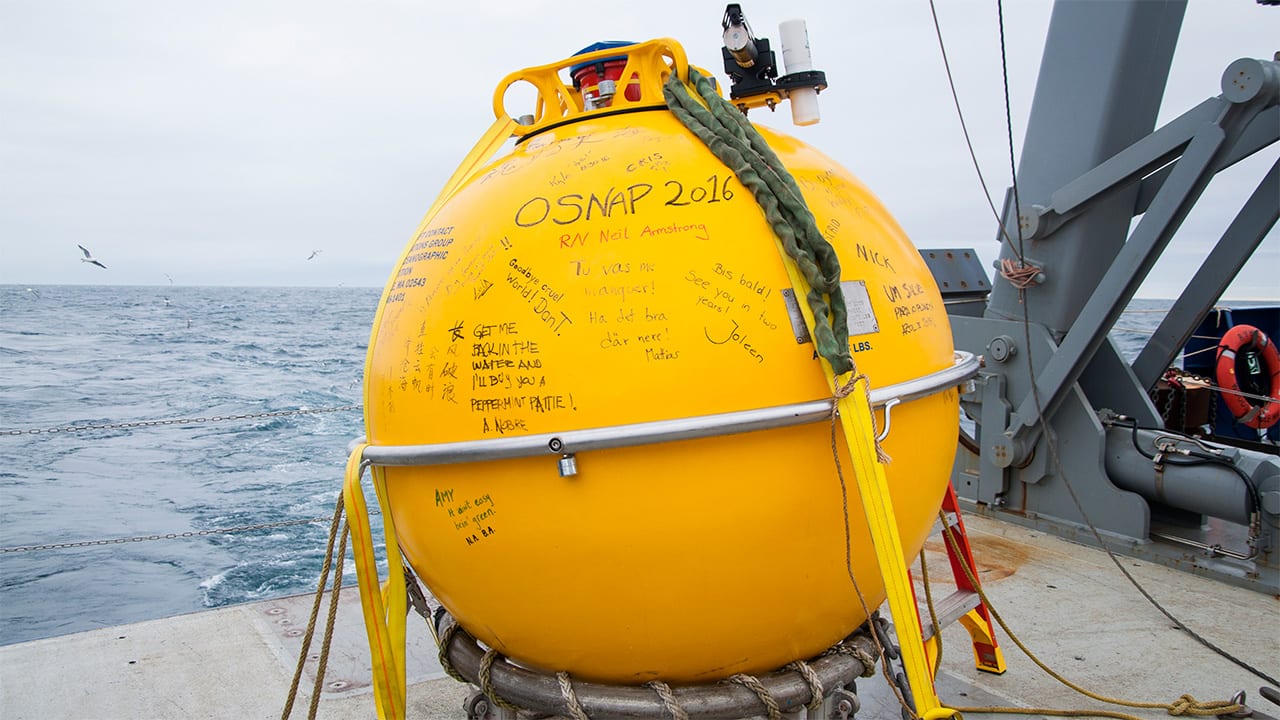Multimedia Items
Casting a Wide Net
In June 2016 R/V Neil Armstrong traveled to the edge and slope of the continental shelf south of Cape Cod. The cruise was part of a series of trips deisgned…
Read MoreSettling In
Oysters and many other bottom-dwelling organisms begin life as free-swimming larvae, drifting in the ocean currents. How and when they decide to settle on the seafloor and grow to adulthood…
Read MoreBear of a Ship
The research vessel Bear was built in Bristol, R.I., in1941 to serve during World War II as a troop carrier in the South Pacific. In 1951, WHOI chartered Bear and purchased…
Read MoreMeasuring Methane
WHOI scientist Anna Michel is developing new ways to measure gases in the air over long distances using a technique called laser spectroscopy. Some of the light from a laser is absorbed by…
Read MoreTag On!
Mike Dodge, husband of marine biologist Kara Dodge, prepares to attach a suction cup-mounted tag to the back of a leatherback sea turtle in waters near Cape Cod recently. Both…
Read MoreMagnetic Attraction
WHOI geologist Maurice Tivey has an unusual speciality: He studies the magnetic properties of rocks. When volcanic magma solidifies, magnetic crystals form in rocks and become oriented in the direction…
Read MoreArriving in Style
Members of the Wampanoag tribal nation (foreground) welcome the crew from the Hōkūle’a at WHOI this summer. Hokule’a is a traditional Polynesian sailing canoe currently on a round-the-world tour to…
Read MoreAlvin‘s Army
Alvin, the nation’s deepest-diving human-occupied research sub, was built in 1964 and has been constantly upgraded ever since. It is part of the NSF-sponsored National Deep Submergence Facility at WHOI, which…
Read MoreWaiting Their Turn
Large orange floats line the edge of the WHOI dock. In a couple of weeks, they’ll board the R/V Neil Armstrong bound for the Coastal Pioneer Array, an ocean observatory about…
Read MoreThe Mysterious Life of Eels
The life cycle of eels still holds many mysteries for scientists. Eels are believed to mate and lay their eggs in the Sargasso Sea in the North Atlantic Ocean—but no…
Read MoreEvery Ship has a Story
This 75 foot-long ship—one of the shortest in WHOI’s history—led quite a diverse life. Balanus was constructed in the early 1940s in Winthrop, Mass., less than 100 miles from her…
Read MoreThe Ocean in Her Life
Ella Ruth Goodman, age 4, went on her first whale watch this summer in the Stellwagen Bank National Marine Sanctuary and discovered another world beneath the waves. Her mother, Jessica,…
Read MoreDeep-water Corals in the Northeast Canyons
Just 100 miles off the most heavily populated coast of North America lie nearly 80 canyons cut into the seabed and continental shelf. The canyons range from 1000 feet to…
Read MoreUp and Comers
For 58 years, WHOI has brought some of the best and brightest undergraduate students from around the world to Woods Hole for a summer-long immersion into ocean science. Students selected…
Read MoreSmall Boat, Big Heart
Coastal waters account for only a fraction of the ocean’s total, but processes that play out close to shore have an oversized impact on us here on land. To study…
Read MoreKeep on Truckin’
The human-occupied vehicle Alvin hitches a ride on a flatbed before being hoisted onto the WHOI-operated research vessel Atlantis in advance of an expedition this summer to explore the depths…
Read MoreHurricane Hunters
Sometimes studying the ocean requires that scientists take to the air, as physical oceanographer Steve Jayne did with the Air Force 53rd Weather Reconnaissance Squadron. Jayne flew with aircraft commander Lt.…
Read MoreOperating Without a Tether
WHOI research engineer Casey Machado works on Nereid Hybrid Tether (HT) during dock trials recently. The “hybrid” in Nereid HT’s name means the remotely operated vehicle (ROV) can either be…
Read More(Fluid) Dynamic Lecturers
The principal lecturers of the 2016 Geophysical Fluid Dynamics program at WHOI were Peko Hosoi, professor of mechanical engineering and mathematics at Massachusetts Institute of Technology, and Michael Shelley, co-director…
Read MoreWhat I Did On My Summer Vacation
Falmouth Morse Pond School students Lauryn McGann, Natalie Packard, and Alexia Morton (left to right) spent part of their summer building a remotely operated vehicle (ROV). The rising sixth graders…
Read MoreRing Around the CTD
Every summer, the WHOI Summer Student Fellowship (SSF) program and the Woods Hole Partnership Education Program (PEP) bring undergraduates to WHOI to learn more about ocean science. The students attend lectures by…
Read MoreScience After Hours
Each year, virtually all the marsh grass in coastal wetlands dies, but very little plant material remains buried in sediments. Understanding where this organic matter goes is an important part…
Read MoreDiving Into Work
Oceanographers use tools ranging from simple nets to complex autonomous robots, but there are times when only a human presence in the ocean will suffice. WHOI diving safety officer Ed…
Read MoreFruits of their Labor
This Labor Day, a very satisfied team on R/V Neil Armstrong is headed to port after a successfully servicing moorings on the OSNAP (Overturning in the Subpolar North Atlantic Program) array…
Read More
